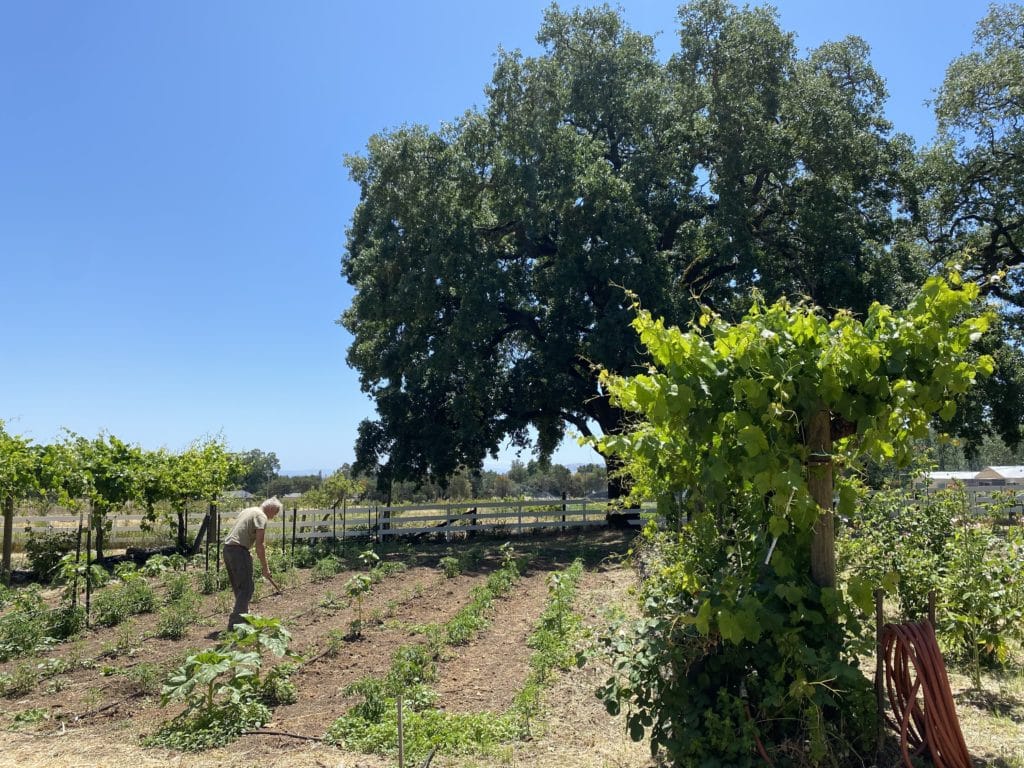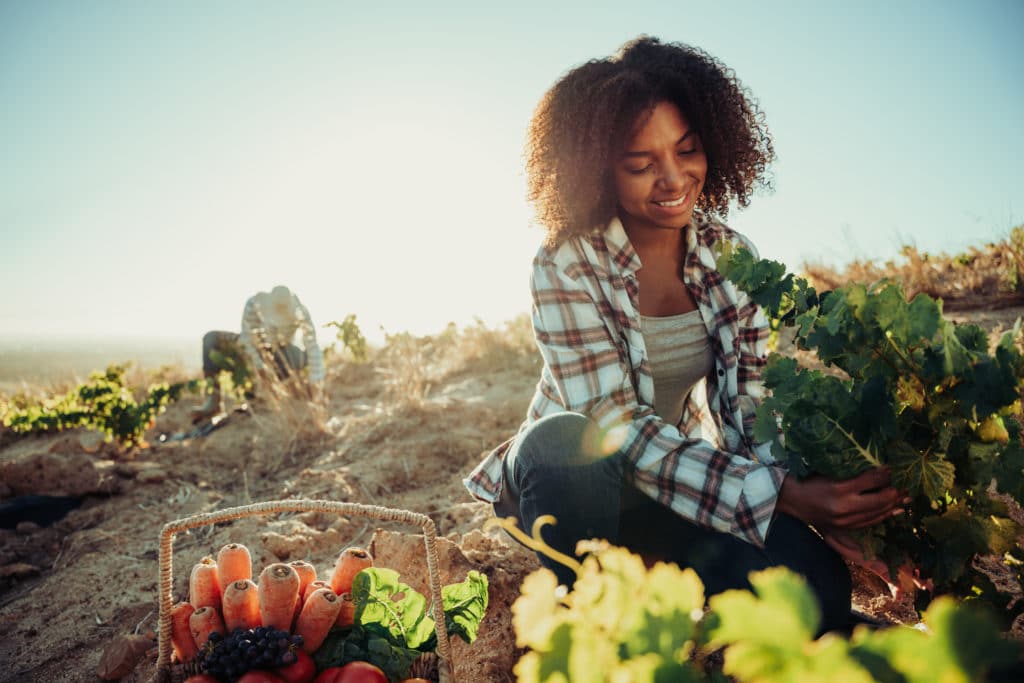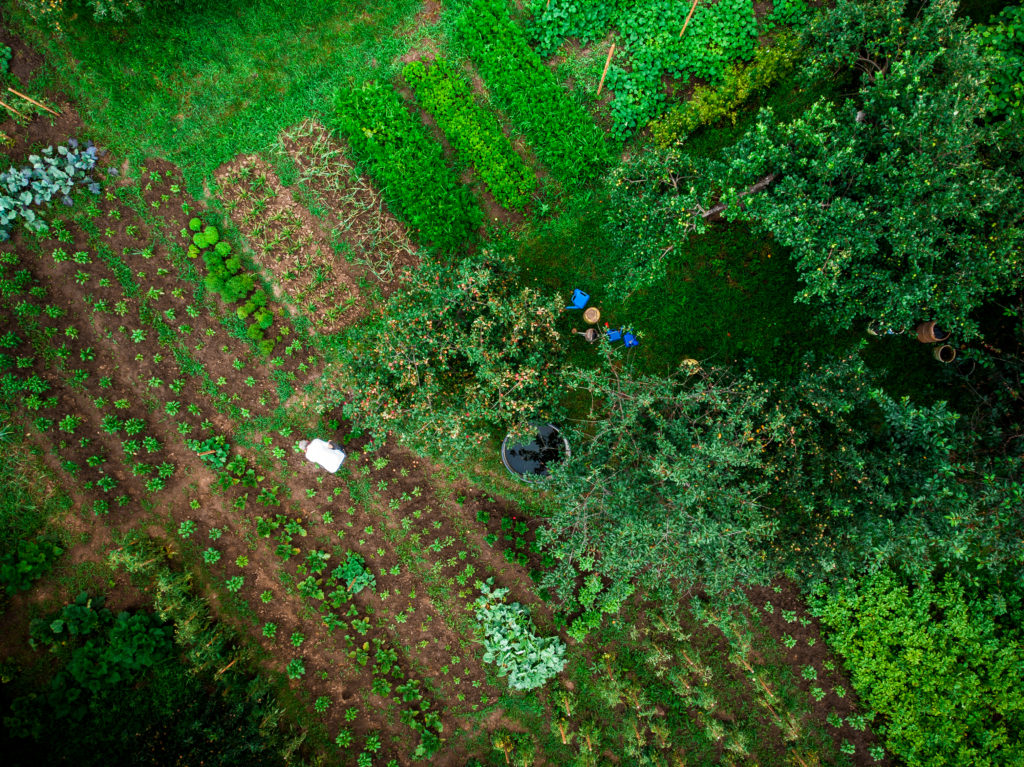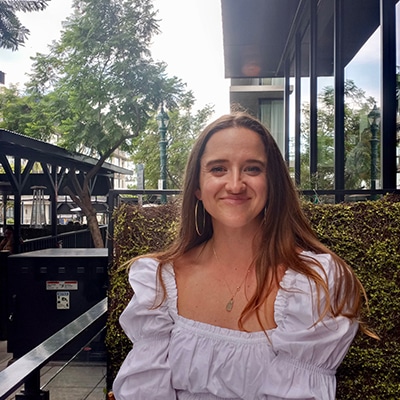



Like many in our modern world, I have struggled with autoimmune issues for much of my life. These varied from eczema, acne, and other skin issues to more serious digestive distress in my early 20s. My single mom spent countless hours (and dollars) bringing me to dermatologists and primary care physicians, all of whom prescribed various creams and pills to treat my uncomfortable symptoms. Privileged to have health care, I took a variety of antibiotics on and off for most of my youth.
Despite the treatments, however, the problems persisted. No doctor was looking into the core of the issue (or, more fittingly, the “root”). By age 21, my health issues had compounded into system-wide distress. I spent every day with itchy, full-body rashes that were aggravated anytime I broke a sweat (which rendered the physical activities I loved, half-marathons and hot yoga, impossible).
For nearly 8 months, I experienced mind-bending insomnia. My digestive system was equally troubled. No longer under the care of a parent, I drove myself to gastroenterologists and immunologists and every other “ist” to whom I was referred. Health felt like a distant cousin at this point in time, something I knew existed and had met before, but I couldn’t remember what it looked or how its company felt. The emotional toll of the physical issues I faced began to weigh heavy on my heart.
After a host of allergy tests revealed a slight allergy to mold, western medicine doctors suggested I begin taking the prescription anti-inflammatory known as Prednisone among other allergy medications. I was baffled to hear that this was what doctors considered my “solution.” Not one healthcare professional asked about the quality of my sleep, my stress levels, or my mental coping skills.
Most importantly, nobody asked me what I was eating. The first person to inquire about my food intake and the quality of my food was an acupuncturist, Rita Huang at East West Acupuncture & Herbs in San Diego, California. After my first treatment, my insomnia broke, and I managed to get nearly 2 hours of continuous sleep. Among other benefits, I felt seen, heard, and held for the first time in my journey. I also had a new answer: consider food as medicine.

When I first opened my eyes to “alternative,” and ancient forms of healing, it was apparent that how a patient is treated with food is equally important to how they are treated with medication. The eastern medicine doctors I met with opened my eyes to a new way of moving through the world.
I began to internalize the old adage, “How you do anything is how you do everything.” I wanted to approach my healing, and my life, from the same place of compassion and wisdom with which my healers approached me. With the support of a village, I found Ayurvedic health coaching, yoga, acupuncture, and a truly anti-inflammatory diet that included a diet rich in whole, unprocessed, organic foods.
Farmers across the world (organic and non-organic alike) face a similar health challenge: the health of their farms. Like humans, crops are living organisms that are subject to illness, disease, unhelpful bacteria that can get into their root systems and destroy the fabric of their being. Like humans, crops are part of a farm system. The health of one crop is inextricably linked to the health of the soil, the water, and the farm as a whole. Treating one pest or managing a drought-ridden season requires a holistic approach, especially for organic farmers.

When farmland is unwell, farmers wish to heal it much in the same way we wish to heal ourselves or our loved ones facing sickness. You can approach healing from a symptomatic perspective by treating the immediate problem, for example when there is a pest attacking a crop (like an aphid, for example).
In a non-organic farming system, farmers can treat pests with synthetic pesticides banned in organic production. The immediate threat may be gone, but what are the long-term side effects? Much like western medicine can keep our illnesses under control with antibiotics and life-saving medication, we know there are side-effects to every treatment plan. A combination of methods can help humans survive, but how could we address the root of the illness to support thriving human health?
While synthetic pesticides can keep a crop alive until harvest by stopping the immediate threat in its tracks, they also have damaging effects beyond killing pests. They can damage the soil’s ability to store carbon (a quality imperative to fighting climate change). They can pollute waterways and the air, affecting the health of frontline communities. They are known to disrupt the habitats of bees and other pollinators whose role in keeping a farm system healthy is of utmost importance. Many of these pesticides are known carcinogens and can negatively impact the fetal brain and immune system development. Is it time we consider treating the health of our farms the same way we treat the health of ourselves?
In 2013, when I began my healing journey, I didn’t know anything about farming. I didn’t know from where my food came, who grew it, or how long it had to travel to get to me. What I came to discover, however, was that there was a solution in front of me: organic. Privilege and access granted me the opportunity to make a dramatic shift in my diet to organic foods. I would be remiss not to mention that communities across the United States do not have equal access to organic foods.
By the luck of the draw, I happened to be born in a part of the world near a high percentage of organic farming operations: Silicon Valley. After the depth of my illness took hold in San Diego, I moved back home to San Jose to heal. When I was a child, it was definitely more “valley” than “silicon,” but having roots in an area rich in organic foods, healthcare professionals, and having financial and geographic access to healing arts gave me an opportunity to heal. This opportunity, unfortunately, is not afforded to us all, yet.

It took more than 2 full years for my body to stabilize and my symptoms to dissipate entirely. Likewise, when farmers make the transition from conventional to organic farming practices, it takes 3 years to complete the process. It takes this long because when you heal a farm (or a human) using a system-focused approach and not a symptom-specific approach, iit takes the soil, roots, crops, and biodiversity a long time to adjust, to come back to a vibrant state of existence.
A human’s kidneys and liver must work in tandem with the blood, lungs, and other organs to expel waste accumulated in the cells of the body. It takes time to rebuild healthy tissue. Much in the same way, soil, rain, sunshine, and living microorganisms in farms take time to expel synthetic pesticides that coat their surfaces and have seeped their way into the pores of the earth. It then takes additional time to build up the strength and resilience of soil. The time is now to continue supporting farmers making this change.

Here’s the catch: not all farms or people have the financial, educational, or community access to healing. Many farmers seek to transition to organic agriculture but lack the financial capital and educational training to do so. People across the globe may not have access to Ayurvedic health coaches, acupuncturists, or organic foods. In 2021, my knowledge of farming and food systems is still in its infancy. As a consumer first, however, the more I learn, the more I believe in the solution of organic. Thousands of years of wisdom in organic farming plus the added backing of scientific research supports this conclusion: human health is interconnected with the health of our earth. Everything we ingest has an impact upon us, from the foods that we eat to the media we consume. What’s more, healing ourselves and our planet is a full-time job.
A great place to start supporting healing in yourself and the ones you love is by investing in organic agriculture. Since starting this journey, I’ve toured organic farms and packing houses along the west coast of the United States, met farmers and leaders of the organic farming movement that have spent decades fighting for the integrity of the organic label, and watched farmers start small organic businesses to feed their local communities.
Organic farming is not new to our world; it’s the way that people have tended to agricultural land for most of recorded human existence. Only within the last hundred years or so have we flipped the script, introducing synthetic pesticides and chemical agriculture. Since then, we’ve witnessed a dramatic shift in the health of our planet and its people.
Farm health is human health. Farming systems, like human systems, have a baseline for vitality. While farms may not have a physical heart, the heartbeat of organic food and farming is something you can’t capture with words. It is something you can feel, touch, see, and taste. Organic farming is healthy farming; it is farming from a place of wellness. It is farming from a system-focused approach.
The farmers I’ve met over the years love the land, what they do, and most notably, the consumers they feed. Farmers are far more likely to call their consumers, “people,” and not categorize them by their purchasing power. However, purchasing power is the very power we all hold to make small changes to our food system.
Supporting organic farms and businesses directly supports the health of our people and our planet. It is an act of faith in our shared future. If you have the financial capacity, it is a statement of your values. As a consumer, it is a strong message to the farmers that grow your food. Your purchase says, “Thank you for helping me to keep my family healthy and well.”
Organic farmers face challenges many of us could never fathom. Even so, some have described their land to me as “little slices of heaven.” They work with nature, not against it.

Healing takes a village, access, and commitment to an entirely different way of life. Luckily, with consumer support, farmers do not have to make the change alone. By supporting Forager Project and other organic businesses, you’re creating economic opportunities and incentives for more young professionals to start organic businesses. What’s more, you’re supporting the CCOF Foundation, a nonprofit that envisions a world where organic is the norm. Through grants and educational programs, the CCOF Foundation is training the next generation of organic farmers and producers, helping organic farmers through hardship, and offering support as farmers make the difficult transition from conventional to organic agriculture. Healing is possible for ourselves and for the planet, one bite at a time.

SHAWNA RODGERS is an environmental advocate and yoga teacher based in Santa Cruz, California. As the Associate Manager of Donor Relations for the CCOF Foundation, she develops and maintains relationships with CCOF’s vast majority of national and international supporters. Additionally, Shawna oversees event planning for all CCOF Foundation-related events and supports social media content creation. Prior to joining CCOF, Shawna worked for lululemon athletica, hosting large community yoga events, developing and training staff, and leading the visual merchandising team. Shawna has also worked in the wine industry and for Major League Baseball. She holds a Bachelor of Arts degree in English Literature from San Diego State University, where she also studied Behavioral Neuroscience and was a Division 1 Athlete. When not at work for the CCOF Foundation, Shawna teaches yoga and meditation classes in Santa Cruz, California.